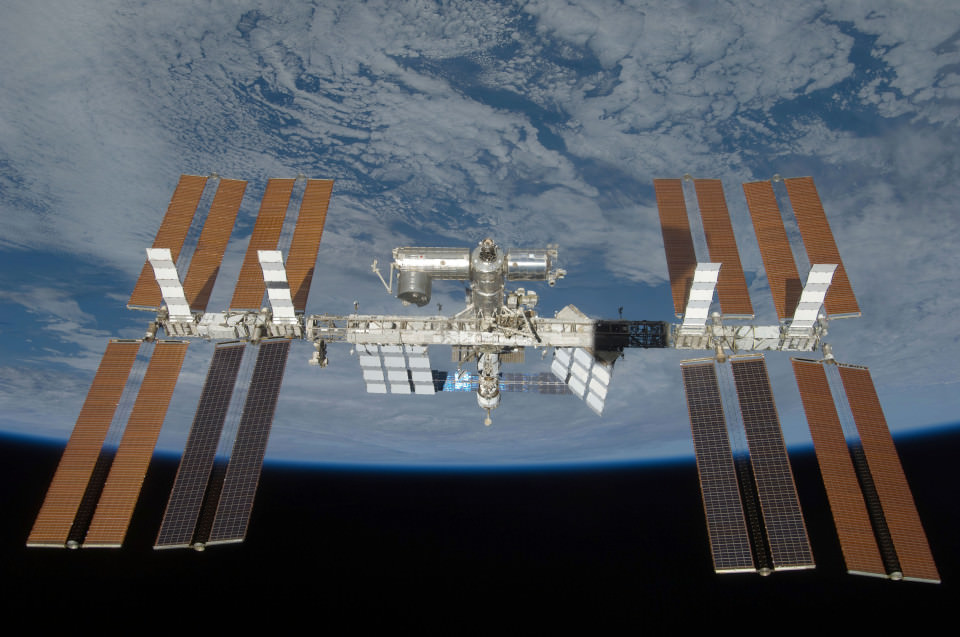
US military chiefs have revealed fears of a terrifying space war which could begin with a massive cyber attack.
THE US military is reportedly readying for the next generation of warfare in space, where science fiction-like weapons such as kamikaze satellites and destructive lasers await — a prospect that many experts see as merely a matter of time.
The nightmare scenario could begin with a massive cyberattack that could disable satellites and ultimately cut off communication networks for millions of Americans, according to an hour-long documentary, War in Space: The Next Battlefield, slated to air this week in the US on CNN.
“As humans go out there, there has always been conflict,” General John Hyten, head of US Strategic Command, told CNN.
“Conflict in the Wild West as we move in the West … conflict in Europe for its horrible world wars. So, every time humans actually physically move into that, there’s conflict, and in that case, we’ll have to be prepared for that.”
Hyten is one of more than 10 high-ranking national security and military personnel interviewed by CNN for the documentary, including the entire US chain of command for space warfare and the former head of Air Force Space Command. These experts say the United States isn’t prepared to respond to the new threats.
Russia and China are America’s chief adversaries in the final frontier, where Russia has already deployed what could be kamikaze satellites called “Kosmos 2499,” designed to approach US satellites and destroy them if necessary.
CNN reported that China has also already launched “Shiyan” satellites, which are equipped with a grappling arm that could pluck satellites directly from their orbit. The Shiyan-7 satellite was among a set of “three mysterious” satellites launched by China in 2013, Space.com reported.
Hyten told CNN that the technology is among a new generation of weaponry that will soon be able to threaten US satellites in all orbital regimes, including just 100 miles up in near-Earth orbit — home to the International Space Station — and geostationary orbit, which starts about 22,000 miles above sea level.
“We have very good surveillance and intelligence capabilities, so we can see the threats that are being built,” he said. “So we’re developing capabilities to defend ourselves. It’s really that simple.”
Created in 1982, the US Space Command has about 38,000 employees, with an annual budget of nearly $8.9 billion. The Pentagon’s broader budget for space operations is $22 billion, CNN reports.
Deputy Defense Secretary Robert Work warned in April 2015 that the US military was ill-prepared for a conflict that “extends into space.” Five months later, Work’s prediction was proved right when US space officials were caught off guard during a simulated space battle on military satellites.
CNN reported that the US is now quietly developing advanced weapons that could potentially have defencive or offensive missions in space, including the US Navy’s Laser Weapons System and a pilotless space drone called the X-37b.
But Peter Singer, a Defense Department adviser on space threats and author of Ghost Fleet: A Novel of the Next World War, told CNN that the war in space is one that the US could possibly lose.
“We’d be silly to say it’s not a possibility,” Singer said. “What any defence [planner] will tell you is, don’t look for the ideal outcome, plan for the worst day so that you can survive.”
General William Shelton, former head of US Space Command, said flatly that the US is not responding quickly enough to evolving threats in outer space.
“Could we provide active defence of our own satellites? The answer’s no,” Shelton told CNN.
NASA officials, meanwhile, said in a statement to The Post that the civilian space agency is dedicated to the “peaceful exploration” of space.
“We are unaware of the report,” a NASA spokesperson said in an email. “NASA is dedicated to the peaceful exploration of space, which is a part of the original space act that Congress passed and President Eisenhower signed in 1958.”













